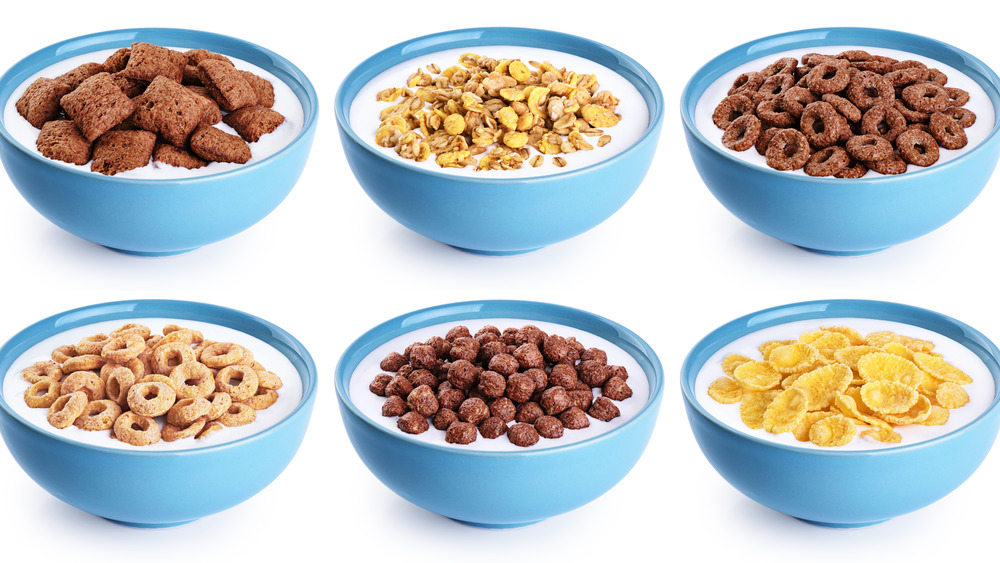What You Should Know Before Taking Another Bite Of Cereal
While eating grains has been a common practice for millennia, breakfast cereal in the form we know it (a more processed form of grains) was first invented in the 1800's. James Caleb Jackson created a cereal called Granula in 1863, but it wasn't popular because the bran nuggets needed to be soaked overnight to be soft enough to eat. Enter John Harvey Kellogg. (Recognize that last name?) When he was the medical superintendent Western Health Reform Institute, Kellogg started experimenting with cereal and in 1895 created the Cornflakes brand. It was a hit. Then in 1906, his brother William K. Kellogg bought the rights and started the Kellogg Toasted Cornflake Company, which is the modern day Kellogg. Charles W. Post (another familiar surname, no?) was a former patient of Kellogg's at the Western Health Reform Institute and went on to create Grape Nuts in 1898, which is still enjoyed today (gunthertodys.com).
But breakfast cereal didn't become a kitchen table staple until the 1950's, when advertisers first took over the TV waves and beamed cereal ads into America's living rooms. Today, Americans spend $7.7 billion a year on breakfast cereal, but just because it's popular, doesn't mean it's healthy.
Why breakfast cereal isn't great for you
Most breakfast cereals are highly processed. According to Healthline, that process goes something like this: First, grains are ground into a fine flour and cooked, then that flour is mixed with other ingredients like sugar and water. Then comes extrusion, which is a process that uses high temperatures and a machine to shape the cereal, and then the cereal is dried. That's a far cry from healthful grains coming straight from the field to your table, and that's why so many are "fortified" with vitamins and minerals (because there isn't much natural nutrition left).
"Most breakfast cereals are low in protein and high in sugar. This combination will spike your blood sugar, followed by a crash, leading to cravings for more sugar, hunger pangs, and a depletion in energy," Dr. Caroline Apovian, director of the Nutrition and Weight Management Center at the Boston Medical Center, told The List. "Many of the calories in popular breakfast cereals are mostly empty calories that do not contain the protein your body needs to keep your metabolism running smoothly."

